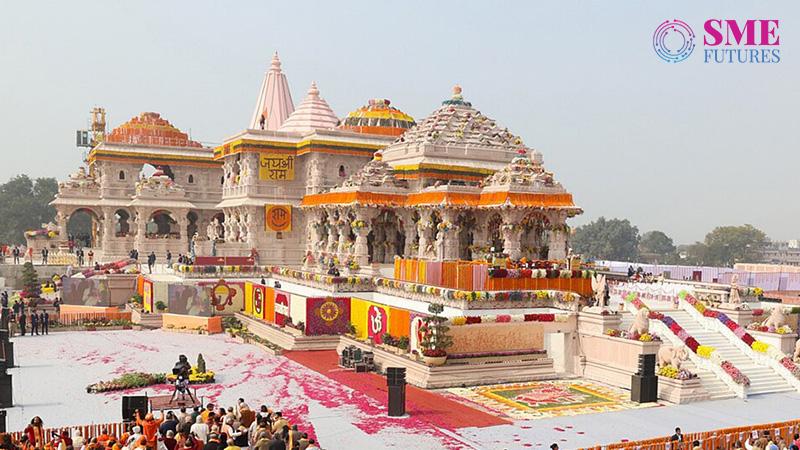A leading hotel management consultancy has projected that Ayodhya, which is expected to receive 10.61 crore tourists annually by 2031 due to the Ram Mandir boost, will “require an inventory of 8,500–12,500 branded keys in the medium to long term to cater to this demand.” That will make the holy city a major development hub for hotels, opening up huge business opportunities in a market that was all but non-existent before 2017, according to Hotelivate.
Just two branded hotels in the budget and economy segments, however, have opened in the run-up to the Ayodhya Ram Mandir consecration, and bigger players have just inked agreements or MoUs, which means their hotels will take another three to five years to come up.
A report co-authored by Mihir Chalishazar and Hotelivate CEO Manav Thadani points out that the government’s strategic focus on developing Ayodhya aligns with the trend of burgeoning spiritual and religious tourism across the country.
Data from the Ministry of Tourism indicates that in 2022, religious and spiritual hubs (including Varanasi, Rishikesh, Katra, Haridwar, Tirupati, and Dwarka) generated revenue of about Rs 1.3 lakh crore ($16 billion) and witnessed a combined footfall of 140 crore (1.4 billion). This roughly translates to one religious trip per capita per year in India.
Interestingly, as the report points out, this footfall was not confined to mainstream destinations; lesser-known markets such as Pushkar, Vrindavan, and Sabarimala are also experiencing a surge in tourism.
“Ayodhya’s tourism boom began with the annual Deepotsav celebration in 2017 and gained momentum after the Supreme Court’s 2019 Ram Temple judgment in 2019. In 2023, more than three crore tourists visited Ayodhya, and projections from the Ministry of Tourism anticipate about three lakh tourists per day by 2031,” the report states.
It emphasises that this clearly indicates a massive opportunity for hospitality in Ayodhya. The recently opened Park Inn by Radisson Ayodhya and Clarks Inn Express Ayodhya represent the only branded supply at this moment.
Major hospitality brands, such as IHCL (Taj Hotels), Marriott, Club Mahindra, Wyndham, The Leela Palace, and ITC Hotels, have expressed keen interest in Ayodhya and some of these brands, have already signed their first hotels in the market; the rest have signed MoUs and are in the process of negotiating final agreements, the report points out.
The government, taking into account this supply-demand mismatch, has been auctioning off plots, with the goal of eventually establishing more than 400 hotels.
As outlined in the Ayodhya Master Plan 2031, the government plans to invest over Rs 85,000 crore ($10 billion) over the next decade in the city.
The investment is aimed at a multifaceted development, including the upgradation of existing infrastructure, the establishment of a spiritual university, greenfield townships (more than 1,200 acres are to be allotted for the development), urban forests, a convention centre, an arts and crafts centre, and a hospitality management and training centre.











